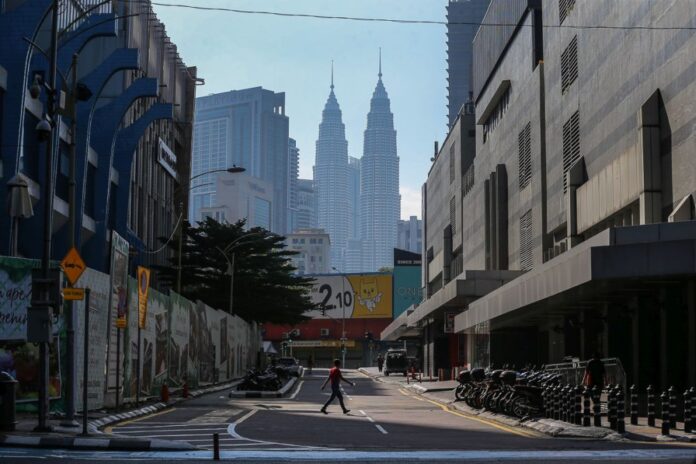A general view of Kuala Lumpur June 1, 2021. — Picture by Yusof Mat Isa
KUALA LUMPUR, Sept 28 — The performance of the land use zones involving areas in the capital last year was found not in line with the Kuala Lumpur City Plan (PBRKL) 2020, gazetted on Oct 30, 2018.
According to the Auditor-General’s Report 2019 Series 2, the matter is partly due to the seven-year delay in gazetting the plan.
“PBRKL 2020 was only gazetted less than two years before the end of 2020. This has caused changes in land use zones and development intensity not in line with the gazetted PBRKL 2020.
“The power provided under Section 22 (1) of Act 267 allows the Mayor to approve 943 planning permissions even though it is not in line with PBRKL 2020,” the report said.
The report also revealed that the change in land use zones and the intensity of development had affected the environment as well as the increase in density apart from causing a reduction in public open space, flash floods and traffic congestion.
“The risk of changing the land use zones is also higher if public open space is not gazetted according to the National Land Code 1965,” it said.
The report also said that there was an increase in land use for mixed commercial and development activities and a decrease for residential, industrial and special industries, institutions, green areas and other uses.
Other weaknesses disclosed in the report were there was government land and the mayor’s land that were sold to third parties by developers as well as a conflict of interest in the land sale transaction.
“The Kuala Lumpur City Hall (DBKL) did not provide detailed information on the method of handing over 640 units of replacement houses in the agreement signed, resulting in a total of RM59.25 million being spent by DBKL to purchase 395 units of Razakmas 2 Residence,” it said.
As such, it was recommended for DBKL to establish an internal control mechanism so that land that has been sold to third parties is not misused and strayed from the original purpose of the sale.
In addition, DBKL and the Federal Territory of Kuala Lumpur Land and Mines Office should consider the technical agency’s recommendation that sustainability between physical, economic, social and environmental development is preserved as well as expedite the process of gazetting public open space to reduce the risk of the land being alienated for development purposes. — Bernama


